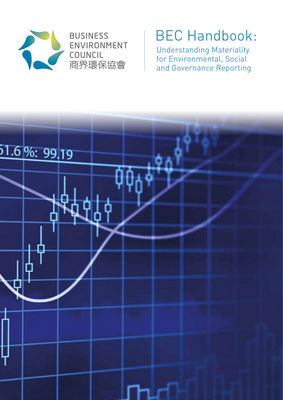Summary
The BEC Handbook: Understanding Materiality for Environmental, Social and Governance Reporting 2014 is a guide developed by the Business Environment Council in Hong Kong to assist companies in understanding materiality and how to report on environmental, social, and governance (ESG) issues. The handbook defines materiality as the degree to which an issue is relevant or significant to an organization, taking into account both the impact of the issue and the stakeholder concern or interest in the issue. The handbook provides guidance on how to identify and prioritize ESG issues based on their materiality, and how to report on these issues effectively. The handbook covers several key areas, including the business case for materiality, how to assess materiality, how to determine stakeholder relevance and engagement, and how to report on material ESG issues. The handbook provides case studies and practical examples to illustrate these concepts and guide companies through the reporting process. The aim of the handbook is to help companies in Hong Kong improve their ESG reporting and ensure that their reporting is relevant, meaningful, and transparent to stakeholders. The handbook is designed for companies of all sizes and sectors, and can be used as a reference guide for those looking to improve their ESG reporting practices.

We have sent you the download link, please check your inbox.
Download againSomething went wrong when trying to download this file.
Try again